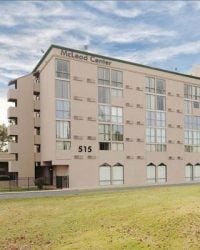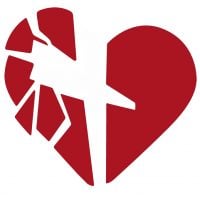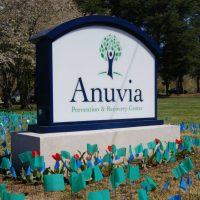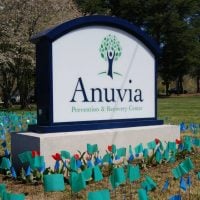
Dilworth Center
Drug Rehab Center in Charlotte, North Carolina
- Substance Abuse
- Opioid Addiction
- Mental Health
- Drug Addiction
- Alcoholism
Dilworth Center is an accredited and highly experienced addiction treatment facility in North Carolina offering a variety of levels of care, including private health insurance acceptance, to suit individual's needs.
About This Charlotte, NC Facility
Dilworth Center, located in Charlotte, North Carolina, is a leading outpatient addiction treatment facility that has been providing comprehensive care for individuals struggling with substance abuse and mental health issues. With a history of success in helping clients achieve lasting recovery, Dilworth Center offers a range of services tailored to meet the unique needs of each individual.
• Personalized substance abuse assessments to identify and address specific challenges
• One-on-one counseling sessions with experienced therapists to work through underlying issues
• Group therapy to foster a supportive community and develop essential coping skills
• Family support programs to educate loved ones and strengthen relationships
Accredited by LegitScript, CARF, and NAATP, Dilworth Center maintains the highest standards of care in the industry. The center accepts private health insurance, making treatment more accessible to those in need. Dilworth's team of skilled professionals is dedicated to helping individuals overcome addiction and build a foundation for long-term recovery.
Dilworth Center specializes in treating alcohol and drug addiction, as well as co-occurring mental health disorders. The facility offers a variety of treatment options, including intensive outpatient and outpatient programs, to accommodate clients' unique needs and schedules. Through evidence-based therapies, such as cognitive-behavioral therapy and motivational interviewing, clients develop the tools and strategies necessary to maintain sobriety and improve their overall well-being.
Genders
Ages
Modality
Additional
Accreditations
NAATP

LegitScript

CARF
The Commission on Accreditation of Rehabilitation Facilities (CARF) is a non-profit organization that specifically accredits rehab organizations. Founded in 1966, CARF's, mission is to help service providers like rehab facilities maintain high standards of care.
Conditions and Issues Treated
Using both legal medications and illegal substances in order to maintain an addiction is substance abuse. Illegal substances can become addictive after a single use. If you are obtaining legal medications illegally, you may be suffering from substance abuse.
Fortunately facilities like Dilworth Center in Charlotte, NC are here to help.
Opioid addiction treatment facilities in North Carolina, like Dilworth Center cover both illegal and prescription opioids abuse. Most plans include detoxification and subsequent medications to ease the process. Behavioral therapies and counseling are also necessary to resolve the root cause of addiction.
Levels of Care Offered
This center offers a variety of custom treatment tailored to individual recovery. Currently available are Aftercare Support, Drug Rehab, Intensive Outpatient, Outpatient, with additional therapies available as listed below.
An intensive outpatient treatment program is set up for those struggling with an addiction to begin the recovery process. Patients come to Charlotte, NC to Dilworth Center for therapy, support, programs, and medical supervision. Intensive outpatient treatment is often very tightly scheduled and heavily structured.
Treatment for substance abuse does not cease after an individual successfully completes a detox or rehabilitation program. A vital follow-up treatment service is aftercare support provided to individuals at Dilworth Center in North Carolina after they attain initial sobriety.
Aftercare support often takes the following forms: 12-Step Programs, Outpatient Treatment Programs, and Support Groups. The most effective aftercare programs are tailored to meet an individual’s specific needs and circumstances.
Dilworth Center‘s Therapies & Programs
Treatment programs include individual therapy for the greatest chances of success. Customized individual therapy is counseling involving you and your Dilworth Center counselor. Individual therapy leads to greater peace and understanding about your triggers for addiction.
When family members are more proactive and involved in the treatment procedure, it encourages the patient to advance his or her progress. Moreover, it shouldn’t be ignored that genetics play a role when it comes to addiction, so it’s better to approach the problem as a unit. Also, with proper education, family members can help an individual avoid addiction triggers and guide him or her in making lifestyle changes necessary for his or her sobriety.
The 12-step program is a part of substance abuse treatment. In this program, peers help each other to achieve the goal of abstinence. It was initially developed by the founders of Alcoholics Anonymous. Due to its huge success, the 12-step program is included as a part of other substance abuse treatments.
The 12 steps guide at an individual level. It begins with the individuals accepting that they are addicts, and they understand its consequences. It is followed by focusing on the recovery process and making amends for hurting others. The program provides the benefit of cognitive restructuring, which refers to the process of change in the negative thoughts that leads to long-term benefits.
Payment Options Accepted
For specific insurance or payment methods please contact us.
Is your insurance accepted?
Ask an expert, call (888) 674-0062
Additional Details
Specifics, location, and helpful extra information.
Charlotte, North Carolina 28203 Phone Number(704) 372-6969 Meta DetailsUpdated April 15, 2024
Staff Verified
Is Dilworth Center a LegitScript Verified Treatment Facility?
According to our most recent records, we have found this center to be LegitScript verified.
Patient Reviews
There are no reviews yet. Be the first one to write one.
Charlotte, North Carolina Addiction Information
North Carolina ranks 29th in the nation for overall substance abuse. Many of the drugs abused in the state are illicit, and many of these are opioids. Prescription opioids are readily available due to the high rates of medical workers prescribing them. The number of prescriptions has increased tenfold since the 1980's. Opioid overdoses are the most common type of death in North Carolina.
4.3% of Charlotte residents aged 12 and older reported using illicit drugs. There are over 60,000 people addicted to drugs in Charlotte, North Carolina. This harms the community and contributes to crime and other social problems. Medication-assisted treatment is often used in conjunction with other forms of treatment, such as therapy, and can be very successful in helping someone overcome addiction.
Treatment in Nearby Cities
- Waynesville, NC (122.1 mi.)
- Fairmont, NC (110.0 mi.)
- Davidson, NC (20.8 mi.)
- Browns Summit, NC (95.0 mi.)
- Castle Hayne, NC (177.6 mi.)
Centers near Dilworth Center

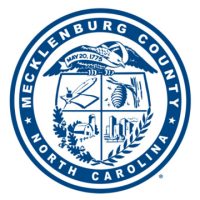
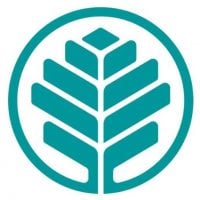
The facility name, logo and brand are the property and registered trademarks of Dilworth Center, and are being used for identification and informational purposes only. Use of these names, logos and brands shall not imply endorsement. RehabNow.org is not affiliated with or sponsored by Dilworth Center.




